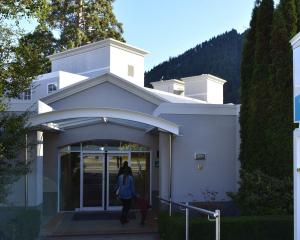It is pleasing to see the first applications being made by potential developers under the recently adopted Queenstown housing accord.
Thirteen such applications have been made, the details of which were released by the Queenstown Lakes District Council last week.
The proposals total more than 1000 properties and cover about 150ha of land in the Wakatipu.
On paper, they appear to be a major step on the path towards addressing the area's housing woes - a chronic shortage of housing, and a desperate need for affordable housing.
However, there are still questions over the accord process, consultation and the issue of affordability.
The Queenstown Lakes District Housing Accord was signed between the Government and the QLDC in October 2014.
Its stated intention was ''to increase the housing supply and improve housing affordability in the district by facilitating development of quality housing that meets the needs of the growing local population.''
That population is diverse, and the geographical peculiarities of Queenstown in addition to the social ones complicate the issue.
There are a high number of holiday home owners, and a high number of lower income tourism and hospitality workers, and there is little land close to the town centre that can be easily developed for housing.
The accord is one of several throughout the country, including in Auckland and Christchurch, and comes under the Housing Accords and Special Areas Act 2013, part of the Government's housing affordability programme.
Under the accord, a council identifies ''special housing areas'' and recommends their creation to the Building and Housing Minister. If accepted, the council then has powers under the Act to streamline the resource consent process and fast track housing developments.
The Queenstown accord makes it clear ''the priority is the development of additional appropriate housing supply, as quickly as possible, to alleviate pressures in the housing market''. To this effect, it set a target of building 1300 homes over three years.
The proposed developments would certainly make an impact, and in many ways can't come soon enough. Most people in Queenstown are fully aware of the extent of the problem, and desire action - without red tape.
However, there are also concerns from some quarters over the accord process, and the fast tracking of developments from those used to the democratic process of consultation, hearings, decisions and rights of appeal.
There are also concerns about whether the affordability issue is being effectively tackled. While the desired number of houses to be built under the accord is made clear, less apparent is what constitutes ''affordable'' housing, how that will be ensured, and how it will be retained.
It is pleasing therefore, that the council's policy for considering special housing areas was partially amended last week.
Developers will be required to negotiate with community housing proponents on the number of allotments allocated for affordable housing and enter binding agreements that ensure community housing is retained in the long term.
Dwellings within special housing areas will not be allowed to be used for short term rental or visitor accommodation.
Some pressing questions remain. With no clear definition of ''affordable'', and no minimum requirement on the number of such houses in a given development, it seems impossible to guarantee genuinely affordable homes for lower income workers and first home buyers.
In the absence of such regulations, market forces will apply and, as long as there is high demand - fuelled by further projected growth - house prices will surely remain too high for many.
The $450,000 starting price tag on the Ayrburn Farm proposal is undoubtedly a substantial improvement given the median district house price of $664,000, but still well over the $300,000 the Queenstown Lakes Community Housing Trust says its clients can afford.
It is certainly reassuring to see progress being made to ease Wakatipu's growing pains.
But it remains to be seen what price tags the ''affordable'' dwellings in the other proposed developments will carry, and whether low income Queenstown workers will ever be able to call a house their own home.












